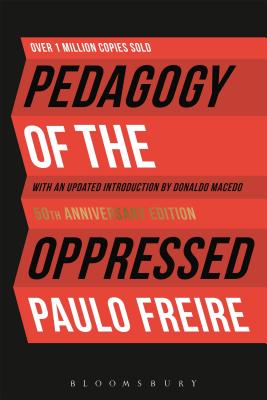
By denying creativity and agency to the student, this type of education serves to disempower and indoctrinate the student in the ideology of the dominant elite, adapting her to the oppressive social order. A strict hierarchy prevails between the authoritarian teacher who possesses knowledge and the receptive student who is presumed by the educational system to be ignorant. In this form of education, the teacher “deposits” information in the student, who serves as a passive receptacle for knowledge. The pedagogy of the oppressed, therefore, aims to overcome the false consciousness of the dispossessed by penetrating the “culture of silence” that afflicts them, and unveiling the structures and causes of oppression.įreire attacks traditional education, which he calls the “banking” method. The historical task of the oppressed is to liberate themselves and their oppressors by becoming subjects in the historical process and surmounting the social institution of domination. We are challenged to fully develop our humanity and this entails the exercise of free will in creating ourselves and transforming the world through our labor. Conditioned by oppression to mistrust and undervalue themselves, the oppressed languish, submerged in the concrete reality of their oppression, thereby developing a false consciousness that is politically immobilizing.įreire claims, however, that humanization is the vocation of human beings. By objectifying and debilitating the oppressed, oppression dehumanizes them as well as their oppressor.


The struggle for liberation is a struggle to reclaim our humanity.

He also cautions against the dangers of sectarianism, which can undermine the revolutionary purpose as well as serve as a refuge for the committed conservative. He addresses the “fear of freedom,” which inhibits the oppressed from assuming this responsibility. Pedagogy of the Oppressed begins with a preface in which Freire asserts the importance of consciousness-raising, or conscientização, as the means enabling the oppressed to recognize their oppression and commit to the effort to overcome it, taking full responsibility for themselves in the struggle for liberation.

His efforts at educational and political reform resulted in a brief period of imprisonment followed exile from his native Brazil for fifteen years. Freire’s own commitment to this struggle developed through years of teaching literacy to Brazilian and Chilean peasants and laborers. The theories of education and revolutionary action he offers in Pedagogy of the Oppressed are addressed to a radical audience committed to the struggle for liberation from oppression. For Freire, education is political and functions either to preserve the current social order or to transform it.


 0 kommentar(er)
0 kommentar(er)
